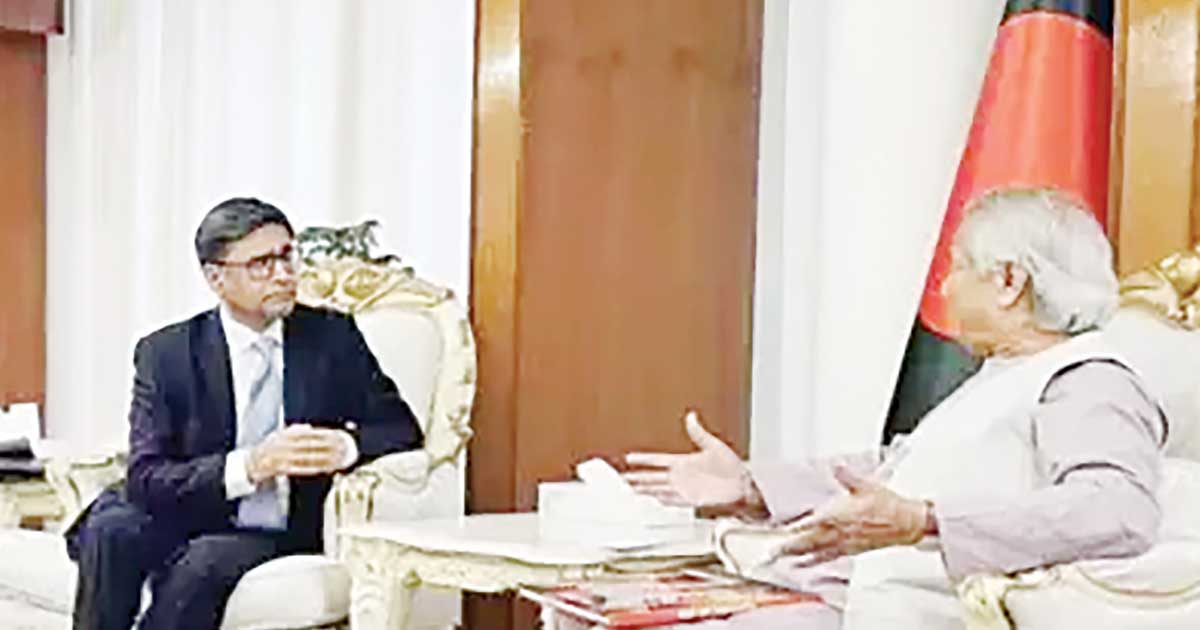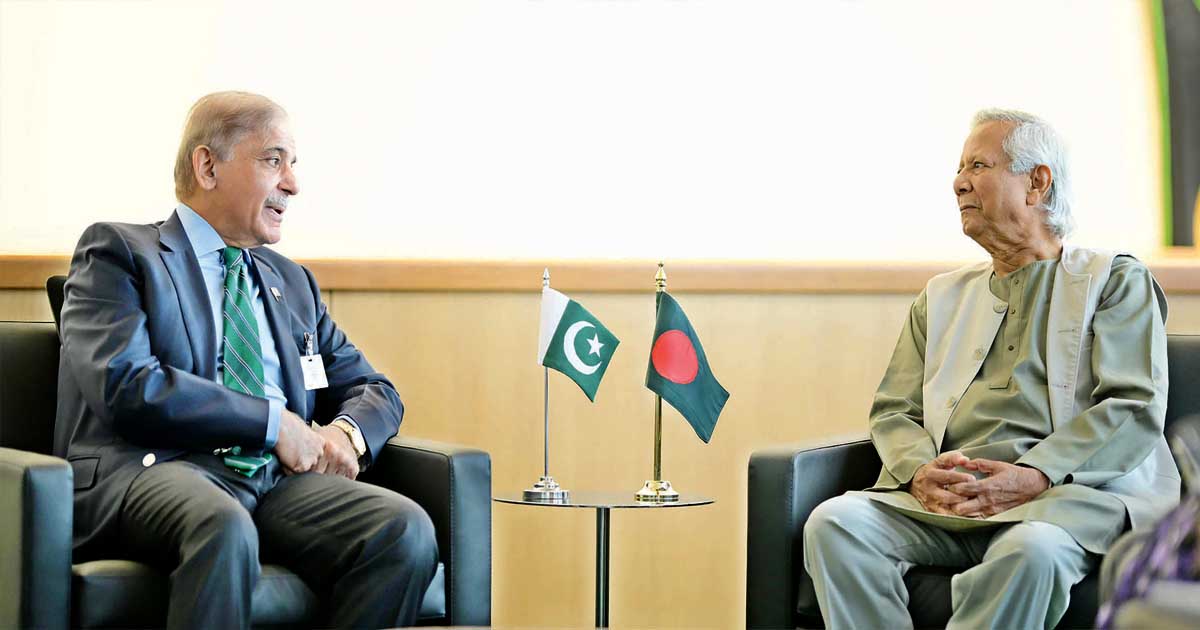- the diplomacy between BD-india in turmoil since August
- Controversial post of Indian PM Narendra Modi raises crisis
- the good relations with Dhaka-Islamabad are on the rise

Political relations between Bangladesh and India have not been good since the fall of Awami League (AL), one of the reliable allies of India on August 5.
On the other hand, the friendship of the interim government with Pakistan is increasing and the affinity is becoming visible with trades.
In the meantime, the foreign secretaries of the Bangladesh-India met in Dhaka this month to reduce tensions with India after August 5. Foreign Secretary Md Jasim Uddin and his Indian counterpart Vikram Misri have agreed to take the relations between the two neighbours forward in the changed context.
However, the controversial post of Indian Prime Minister Narendra Modi on the day of Victory Day did not get good treatment in Dhaka. This sends a message of challenge in harnessing Dhaka-Delhi political ties.
A senior foreign ministry official said the foreign secretary-level talks between the two countries were held in Dhaka as the first initiative to resolve tensions with New Delhi after August 5, that's the positive side. Whether the benefits of that meeting will come will be understood later. If for some reason nothing positive happens, at least trade and commerce between the two countries will continue; maybe there will be political distance.
Meanwhile, Dhaka's relations with Delhi have been distanced, but good relations with Islamabad are increasing. Since taking over as the interim head of government, Yunus has already held two meetings with Pakistani Prime Minister Shehbaz Sharif on foreign earth.
Yunus and Shehbaz met for the first time on the sidelines of the UN General Assembly in New York in September. Apart from this, the High Commissioner of Pakistan is running around Dhaka. Some believe that a high commissioner in Islamabad is currently having the best time in Dhaka.
There is another discussion araise with the relation between Bangladesh and United States, especially after the win of Donald Trump.
Chief Adviser Dr. Yunus started his first foreign tour through the United States after the interim government took office. He attended the United Nations General Assembly in New York. On his second visit, he attended the COP29 summit in Azerbaijan in November. The chief adviser recently visited Egypt to attend the D-8 summit. All three visits are multilateral.
Yunus met with the US President on the sidelines of the UN General Assembly in September. There is no precedent for such a bilateral meeting. During the visit, the head of the government of Bangladesh met with the heads of 12 countries and states, including US President Joe Biden, Pakistani Prime Minister Shehbaz Sharif, Canadian Prime Minister Justin Trudeau, and participated in 40 high-level meetings on the sidelines.
Diplomats in Dhaka say Bangladesh's relations with the United States, the European Union and other western countries were strained over various issues. Dr. Yunus' visit to New York has overcome much of that crisis. In particular, efforts have been made to overcome the image crisis of Bangladesh on various issues including democracy, human rights.
Meanwhile, the interim government is moving forward with a policy of 'go slow' in relations with China. That is why Beijing is looking forward to forming a political government in Bangladesh. Diplomats posted in Dhaka have been holding meetings with leaders of different political parties, including BNP-Jamaat.
In the meantime, Malaysian Prime Minister Anwar Ibrahim visited Dhaka in October last year at the invitation of Yunus, the head of the interim government. East Timor President Jose Ramos-Horta recently visited Bangladesh, three months after the Malaysian prime minister's visit to Dhaka.
It was after 11 years that a Malaysian prime minister visited Bangladesh. This was the first visit of a country's top leader to Dhaka after the interim government took office. Anwar Ibrahim assured that around 18,000 Bangladeshi workers would be allowed to go to Malaysia during the visit.
On the other hand, a visa exemption agreement was signed between the two countries during the visit of East Timor President Horta to Dhaka.
The interim government led by the Nobel laureate economist has taken initiatives to appoint and reshuffle ambassadors/high commissioners in different embassies after assuming office. As part of which, the appointment of 21 ambassadors is going to be finalized so far, including the appointment and reshuffle of vacant posts.
So far, two missions have been recruited. Permanent Representative to the United Nations in New York and Permanent Representative to OIC (Organization of Islamic Cooperation) have been sent. Besides, the government will formally announce the names of the envoys appointed for the missions in London, Romania, the United Arab Emirates and Portugal soon.
It is expected that the appointment of ambassadors to other missions will be announced within this year.
Diplomatic sources say this is the first time in the history of Bangladesh that so many ambassadors have been appointed or reshuffled in such a short time. Never before has so many missions been appointed or reshuffled. This is a big change in the diplomatic arena after the interim government took office.
Bangladesh is in trouble with Rohingya refugees who have taken shelter in Bangladesh from Myanmar. In addition to not being able to repatriate the sheltered Rohingyas, Bangladesh is worried about the ongoing unrest on the Myanmar border at different times and the influx of new Rohingyas.
The interim government is not in principle in favor of Rohingya refugee asylum. Yet the infiltration cannot be stopped. An additional 60,000 Rohingyas have entered Bangladesh from Myanmar in the last few months. Not only that, the Arakan Army, which is fighting against Myanmar's junta government, has occupied 270 kilometers of the border with Bangladesh.
In solidarity with the anti-discrimination student movement, Dr. Muhammad Yunus played the last role in freeing the convicts in the Middle East countries, including the United Arab Emirates. Of these, 188 expatriate workers convicted in Dubai have been released. Most of them have returned to the country.
The release of expatriates after Dr. Yunus took office is seen by those concerned as the biggest diplomatic success of the interim government. However, the government is in some trouble with visa applicants from Italy. In addition, Bangladeshi workers have been banned from going to several countries including the Middle East. Not only that, workers in some Middle Eastern countries including Saudi Arabia and Malaysia are in trouble for not getting work.
Meanwhile, due to the war situation in Lebanon, Bangladeshi citizens residing in the Middle Eastern country are being repatriated. So far, 1,142 Bangladeshis have been repatriated.
Western countries, including the United States, have been expressing concern at various times about the disappearance of Bangladeshi citizens during the tenure of Sheikh Hasina's government. However, the Awami League government did not take it into account in that sense. After Sheikh Hasina was ousted from power on August 5, Bangladesh signed the International Convention Against Disappearances on August 29. Dr Yunus, an advisor to the interim government in Dhaka, signed the document.
The ICPPED is the only international convention under the United Nations that has been adopted on enforced disappearances. Its aim is to prevent enforced disappearances, ensure justice for victims, and enhance international cooperation in the fight against this grave human rights violation.






